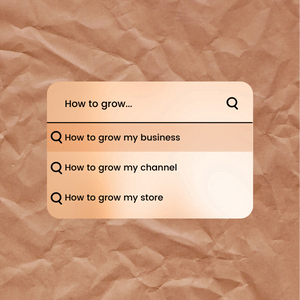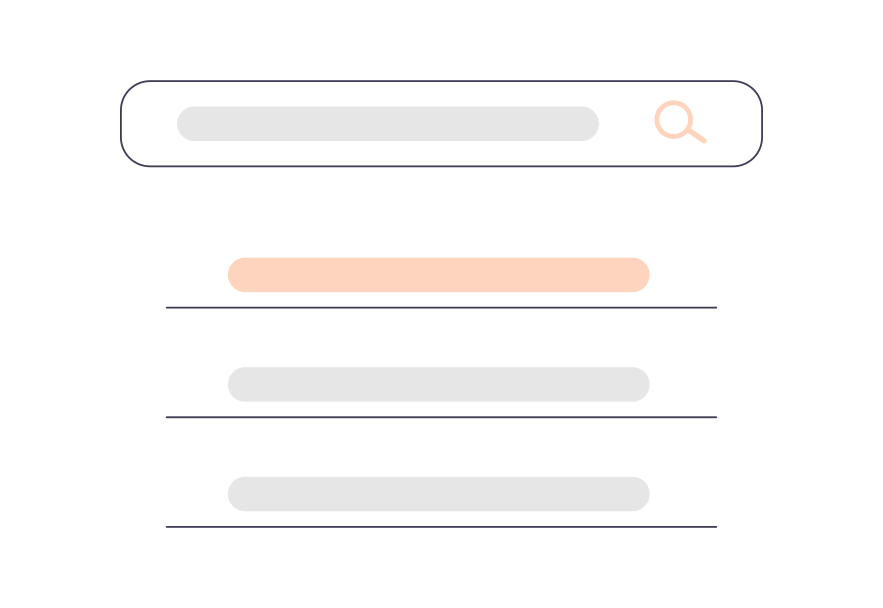
Master Any Niche: Unbeatable Keyword Research Strategies
Disclaimer: This post may contain affiliate links, meaning we get a small commission if you purchase through our links. For more information, please visit our Disclaimer Page.
If you want to make serious money online this year, keyword research is essential. This article covers how to dominate over ten niches, including food blogs, travel blogs, AI blogs, outdoor home software, van life, crypto, sports, insurance, and pets. We’ll show you how to find new affiliates and high-volume keywords, rank for them, and speed up the process with AI tools.
Good keyword research is the foundation of any website that wants to get traffic and make money. Every piece of content you publish should have the goal of ranking, and every article can be its mini-business. We’ll break down the keyword research process into seven parts and show you how to structure your content for different keywords.
Key Takeaways
- Keyword research is essential for making money online.
- Good keyword research is the foundation of any website that wants to get traffic and make money.
- We’ll cover how to find new affiliate and high-volume keywords, how to rank for them, and how to speed up the process with AI tools.
Subscribe for MKT Beginner Weekly News
Keyword Research Fundamentals
As we dive into the world of keyword research, it’s essential to understand the basics. Keywords are phrases that people use when they’re searching for things online. Understanding search intent is crucial in finding the keywords to drive traffic to your website.

Types of Search Intent
There are four types of search intent: informational, navigational, commercial, and transactional. Navigational intent is irrelevant to our keyword research, but the other three types are essential to understand.
Informational intent is when people are looking for information online. This type of intent is where Google shines as people go to Google to find answers to their questions. Examples of informational intent keywords include “how to do something” or “what is something.”
Commercial intent is when people search for brands and services. This type of intent is essential for businesses that want to promote their products or services online. Examples of commercial intent keywords include “best car insurance rates” or “top-rated restaurants.”
Transactional intent is when people search for comparison products and reviews or are ready to purchase. This type of intent is essential for businesses selling products or services online. Examples of transactional intent keywords include “best laptops under $1000” or “Capital One Venture Card review.”
Transactional vs. Informational Intent
Regarding keyword research, it’s essential to understand the difference between transactional and informational intent. Transactional keywords are optimized to encourage users to take action, such as making a purchase or signing up for a service. Informational keywords are broader and cover many bases, such as “how to” articles or idea posts.
Keyword Monetization Matrix
The Keyword Monetization Matrix is a framework for thinking about keywords when starting. It’s essential to consider both search volume and competition when selecting keywords. Low-volume posts are easy wins, but they will only make a little money. High-volume informational posts can build your brand and get traffic. High-volume transactional posts are the “antiques” of your niche and can make much money, but they are also highly competitive.
In summary, understanding search intent and the difference between transactional and informational keywords is crucial in finding the right keywords for your website. Using the Keyword Monetization Matrix can help you select the best keywords for your business.
Keyword Research Tools
Now that we have covered the fundamentals of keyword research and search intent let’s dive into the tools that can help us find the best keywords for our content. This section will discuss two types of devices: AI tools and SEO tools.
AI Tools
Artificial intelligence (AI) tools can speed up the keyword research process and provide insights that are difficult to uncover manually. Some popular AI tools for keyword research include:
- Frase: This tool uses AI to analyze your content and suggest relevant keywords and topics target. It also provides insights into search intent and content gaps.
- Clearscope: Clearscope uses AI to analyze the top-ranking pages for a given keyword and recommends optimizing your content to rank higher.
- MarketMuse: MarketMuse uses AI to analyze your content and suggest topics and keywords targeted based on search intent and relevance.
These AI tools can be a valuable asset for keyword research, especially for those who want to speed up the process and get more in-depth insights.
SEO Tools
In addition to AI tools, many SEO tools can help with keyword research. Here are some popular ones:
- Google Keyword Planner: This free tool from Google allows you to research keywords and see their search volume, competition, and suggested bids for ads.
- Ahrefs: Ahrefs is a comprehensive SEO tool with a keyword explorer feature that allows you to find new keyword ideas and see their search volume, difficulty, and potential traffic.
- SEMrush: SEMrush is another popular SEO tool with a keyword research feature. It lets you find new keyword ideas, see their search volume, and analyze the competition.
These SEO tools can help you find new keyword ideas, analyze the competition, and make data-driven decisions for your content strategy.
Combining AI and SEO tools can help you find the best keywords for your content and improve your chances of ranking higher in search results.
Keyword Research Strategies Process

When it comes to keyword research, we have a process that we follow to ensure we find the best keywords for our content. Here are the three main steps of our keyword research process:
Seed Keywords
The first step in our process is to come up with seed keywords. These are the main keywords that we want to target in our content. We brainstormed a list of seed keywords based on our niche and the topics we wanted to cover. For example, if we have a food blog, our seed keywords might be “recipes,” “cooking,” and “meal planning.”
Keyword Expansion
Once we have our list of seed keywords, we use keyword research tools to expand our inventory. We look for related keywords and long-tail variations of our seed keywords. This helps us find keywords that we may not have thought of initially. We also look at each keyword’s search volume and competition to determine which ones are worth targeting.
Keyword Analysis and Selection
After a list of potential keywords, we analyze and select the best ones for our content. We look at the search volume, competition, and relevance to our range. We also consider the intent behind the keyword and whether it aligns with our goals for the content. We select a mix of high volume, low competition keywords and more targeted, specific keywords to ensure we reach a broad audience while targeting our ideal readers.
This process allows us to find the best keywords for our content and ensure we’re targeting the right audience. Keyword research is the foundation of any successful content strategy, and by taking the time to do it right, we can increase our traffic and revenue.
Keyword Optimization
Now that we have covered the fundamentals of keyword research, it’s time to move on to keyword optimization. Keyword optimization is optimizing your content for the keywords you have identified through your research. This is important because it helps search engines understand what your content is about and rank it accordingly. In this section, we will cover both on-page and off-page optimization.
On-Page Optimization
On-page optimization refers to the changes you make to your website or content to make it more search-engine friendly. Here are some key factors to consider when optimizing your content:
- Title Tag: Your title tag is the most important on-page SEO factor. Ensure that your target keyword is included in the title tag and that it is compelling enough to entice users to click through to your content.
- Meta Description: The meta description is the short snippet of text that appears below your title tag in search engine results. It should include your target keyword and a brief description of your content.
- Header Tags: Use header tags (H1, H2, H3, etc.) to break up your content and make it easier to read. Include your target keyword in at least one header tag.
- Keyword Density: While including your target keyword in your content is essential, do just what is necessary. Aim for a keyword density of around 1-2%.
- Image Optimization: Optimize your images by including descriptive alt tags with your target keyword.
Off-Page Optimization
Off-page optimization refers to the factors that influence your website’s ranking outside your website. Here are some key factors to consider when optimizing your off-page SEO:
- Backlinks: Backlinks are links from other websites to your website. The more high-quality backlinks you have, the better your website will rank.
- Social Media: Social media can help increase your website’s visibility and drive traffic to your content. Make sure that your content is shareable and promote it on social media.
- Local SEO: If you have a local business, ensure your website is optimized for local search. This includes optimizing your Google My Business page and getting listed in local directories.
By optimizing both your on-page and off-page SEO, you can increase your website’s visibility and drive more traffic to your content. Remember that SEO is an ongoing process requiring regular updates and maintenance. However, you can dominate your niche and make more money online with the right strategy and tools.
Keyword Tracking and Analysis
As we continue our keyword research course, tracking and analyzing our chosen keywords’ performance is crucial. This will help us understand what is working and what needs improvement. This section will discuss the tracking tools and metrics to monitor.
Tracking Tools
There are several tools available for tracking keyword performance. Some of the most popular tools include:
- Google Analytics: This free tool provides valuable insights into website traffic, user behavior, and conversions. You can track the performance of individual pages and see which keywords drive the most traffic.
- SEMrush: This paid tool provides keyword research, tracking, and analysis. You can track your keyword rankings, monitor your competitors, and get insights into your website’s traffic and performance.
- Ahrefs: This paid tool offers keyword research, tracking, and analysis. It provides detailed insights into your website’s backlinks, organic search traffic, and keyword rankings.
Metrics to Monitor
When tracking keyword performance, there are several metrics to monitor.
These include:
- Keyword Rankings: This measures the position of your website in search engine results pages (SERPs) for specific keywords. You can track your rankings to see if they improve or decline.
- Organic Search Traffic: This measures your website’s traffic from search engines. You can track the number of visitors, page views, and bounce rate to see how your keywords perform.
- Click-Through Rate (CTR): This measures the percentage of users who click on your website’s link in the search engine results pages. A higher CTR indicates that your keywords and meta descriptions are effective.
- Conversion Rate: This measures the percentage of visitors who take a desired action on your website, such as purchasing or filling out a form. You can track the conversion rate for individual pages and see which keywords drive the most conversions.
By tracking these metrics, we can identify areas for improvement and make data-driven decisions about our keyword strategy. We can also see which keywords generate the most traffic and conversions and focus our efforts on optimizing those pages.
Niche-Specific Keyword Research
As mentioned earlier, keyword research is the foundation of any website that wants to get traffic and make money. This section will focus on niche-specific keyword research for various niches.
Food Blogs
Food blogs are a popular niche with much potential for monetization. When doing keyword research for food blogs, you want to focus on keywords related to recipes, cooking techniques, and ingredients.
Some examples of keywords for food blogs include “best banana bread recipe,” “how to make chocolate cake,” and “easy dinner recipes.”
Travel Blogs
For travel blogs, you want to focus on keywords related to destinations, travel tips, and things to do in different locations. Some examples of keywords for travel blogs include “best beaches in Bali,” “how to travel on a budget,” and “things to do in Paris.”
AI Blogs
AI blogs are a relatively new niche with much growth potential. You want to focus on machine learning, artificial intelligence, and data science keywords when doing keyword research for AI blogs.
Some examples of keywords for AI blogs include “best machine learning courses,” “how to implement AI in your business,” and “latest trends in data science.”
Home and Outdoor
For home and outdoor blogs, you want to focus on keywords related to home improvement, gardening, and outdoor activities. Some examples of keywords for home and outdoor blogs include “best garden tools,” “how to build a fire pit,” and “DIY home improvement projects.”
Software
For software blogs, you want to focus on keywords related to software development, programming languages, and software tools. Some examples of keywords for software blogs include “best Python libraries,” “how to learn Java,” and “top software development trends.”
Van Life
Van Life blogs are a unique niche with much potential for monetization. When doing keyword research for van life blogs, you want to focus on keywords related to van conversions, van life tips, and travel destinations.
Some examples of keywords for van life blogs include “best van life conversions,” “how to live in a van full-time,” and “top van life destinations.”
Crypto
Crypto blogs are a popular niche with much growth potential. When doing keyword research for crypto blogs, you want to focus on keywords related to Bitcoin, blockchain, and cryptocurrency trading.
Some examples of keywords for crypto blogs include “best Bitcoin wallets,” “how to buy cryptocurrency,” and “latest trends in blockchain technology.”
Sports
For sports blogs, you want to focus on keywords related to specific sports, athletes, and sports news. Some examples of keywords for sports blogs include “best soccer players of all time,” “latest NBA news,” and “top NFL draft picks.”
Insurance
Insurance blogs are a niche with much potential for monetization. When doing keyword research for insurance blogs, you want to focus on keywords related to different types of insurance, insurance companies, and insurance policies.
Some examples of keywords for insurance blogs include “best car insurance companies,” “how to save money on home insurance,” and “types of life insurance policies.”
Pets
For pet blogs, you want to focus on keywords related to different types of pets, pet care, and pet products. Some examples of keywords for pet blogs include “best dog food brands,” “how to train a cat,” and “top pet products for 2023.”
F.A.Q. about Keyword Research
What is keyword research?
Keyword research identifies and analyzes the search terms people use to find online information. It is crucial in search engine optimization (SEO) and content marketing.
Why is keyword research important?
Keyword research is important because it helps you understand what your target audience is searching for and allows you to optimize your content to meet their needs. By targeting the right keywords, you can improve your search engine rankings, drive more traffic to your website, and ultimately increase conversions.
What are some keyword research strategies?
Some keyword research strategies include using keyword research tools, analyzing competitor keywords, looking at related search terms, and analyzing search intent. It’s also important to consider factors such as search volume, keyword difficulty, and relevance to your audience.
What are long-tail keywords?
Long-tail keywords are longer, more specific search terms, often less competitive than shorter, more generic ones. They may have a lower search volume but can be more targeted and relevant to your audience.
How do I use keyword research in content marketing?
Keyword research can help you identify the topics and keywords your audience is interested in and guide your content creation strategy. By incorporating targeted keywords into your content, you can improve your search engine rankings and attract more traffic to your website.
How often should I do keyword research?
Keyword research should be ongoing, as search trends and user behavior can change. It’s a good idea to regularly review and update your keyword strategy to ensure that you are targeting the right keywords and meeting the needs of your audience.
What are some common keyword research tools?
Some common keyword research tools include Google Keyword Planner, SEMrush, Ahrefs, and Moz Keyword Explorer. These tools can help you identify relevant keywords, analyze search volume and competition, and track your search engine rankings.
Can I do keyword research for free?
Many free keyword research tools, including Google Keyword Planner, Ubersuggest, and Keyword Tool, are available. While these tools may have limitations compared to paid tools, they can still provide valuable insights into search trends and user behavior.
Conclusion
In conclusion, mastering keyword research is essential for any business or individual looking to succeed online. As we approach the end of 2023, keyword research’s importance will grow as competition increases and search engines become more sophisticated. Following the steps outlined in this tutorial will equip you with the knowledge and tools necessary to dominate any niche and drive traffic to your website. Remember to stay up-to-date with the latest trends and techniques in keyword research, and always keep your target audience in mind when selecting your keywords. Dedication and perseverance can achieve great success in your online endeavors.
See our Credits page to see the sources of origin of some of the images published on MktBeginner.
About the Author

